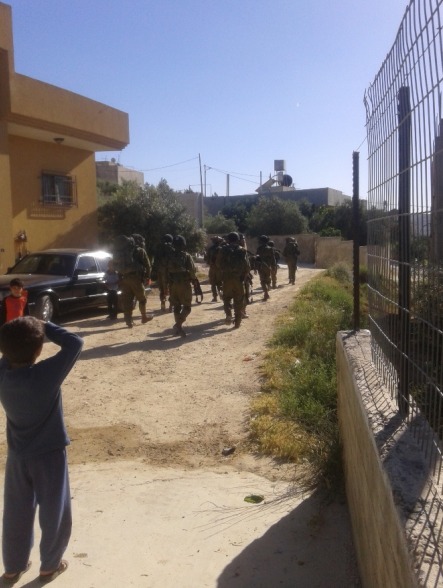Category: Reports
-
Daily Harassment in the Qeitun area
6th May 2014 | International Solidarity Movement, Khalil Team | Hebron, Occupied Palestine Residents of Qeitun area of Al-Khalil, near Shuhada St. are presented with a very different kind of daily routine than other areas of the occupied West Bank. Israel occupation forces not only raid houses and harass people on a daily basis, but…
-
Harassment in Awarta
2nd May 2014 | International Solidarity Movement, Nablus Team| Awarta, Occupied Palestine At 4.30 am on Wednesday the 30th of April; a group of Israeli soldiers broke into a family home in the village of Awarta, near the illegal settlement of Itamar. 11 soldiers woke up the family, claiming that it was “security search”. A member of the family…
-
The Palestine Trauma Centre – psychological support for Gaza
30th April 2014 | Paramedics in Gaza | Gaza, Occupied Palestine We connected with the Palestine Trauma Centre (PTC) before we had left the UK. Within a few days of contact with them they had resolved all of our complicated visa issues and have since proved to be the most wonderful hosts. In our first couple of…



